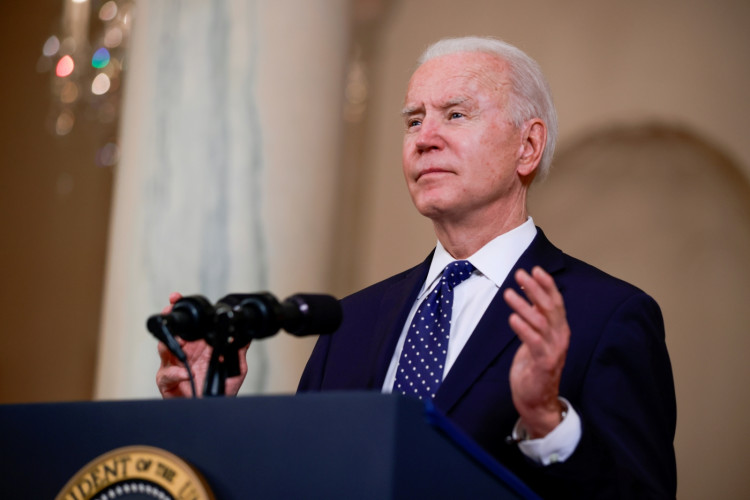President Joe Biden, in one of his final actions before leaving office, extended Temporary Protected Status (TPS) for nearly one million migrants, providing a lifeline to those from El Salvador, Venezuela, Sudan, and Ukraine. The move, announced on Friday, delays potential deportations and renews work permits for individuals covered by the program, even as President-elect Donald Trump signals a shift toward stricter immigration enforcement.
The Department of Homeland Security (DHS) extended TPS protections for Salvadorans until March 2026 and for Venezuelans, Sudanese, and Ukrainians until October 2026. These designations shield migrants from deportation to countries deemed unsafe due to conflict, natural disasters, or other extraordinary conditions.
"This extension is just a small victory," said Felipe Arnoldo Díaz of the National TPS Alliance. "Our biggest concern is that after El Salvador, there are countries whose TPS are expiring soon and are being left out, like Venezuela, Nepal, Sudan, Nicaragua, and Honduras."
TPS, first enacted in 1990, provides migrants with legal status to remain in the United States temporarily but does not offer a path to citizenship. Critics argue the program has often been extended repeatedly, effectively allowing migrants to remain indefinitely.
During his first term, Trump attempted to terminate TPS for several countries, including El Salvador, only to face legal challenges. Now preparing to retake office, Trump has vowed to implement what his transition spokesperson, Karoline Leavitt, described as "the largest deportation operation of illegal criminals, drug dealers, and human traffickers in American history."
Trump's administration is expected to target TPS as part of its broader immigration crackdown, raising the stakes for the Biden administration's eleventh-hour actions. "President Trump will enlist every federal power and coordinate with state authorities to fulfill his campaign promises," Leavitt added.
While the extensions represent a reprieve for many, they fall short of demands from immigration advocates who had urged Biden to expand TPS to include migrants from additional nations, such as Guatemala and Ecuador. Advocates also pushed for broader protections for Nicaraguans, many of whom entered the U.S. under Biden's humanitarian parole program.
Todd Schulte, president of the immigration advocacy group FWD.us, criticized the omission. "As the administration nears the end of its term, we strongly urge President Biden to fulfill his foreign policy commitments and redesignate TPS for countries like Nicaragua," he said.
The Biden administration's reluctance to expand TPS further reflects a balancing act between aiding vulnerable migrants and avoiding accusations of political maneuvering. Administration officials reportedly feared appearing as though they were intentionally complicating Trump's transition.
For Salvadorans, the extension brings relief amid challenging conditions at home. The DHS cited environmental disasters and ongoing instability as reasons for its decision. El Salvador, once one of the most violent countries globally, has seen record-low homicide rates under President Nayib Bukele's controversial crackdown on gang activity. However, widespread arrests and reports of constitutional rights abuses have raised concerns.
"It brings me peace of mind, a breath of fresh air," said José Palma, a Salvadoran TPS recipient living in Houston. "That's 18 more months of being protected. It offers me stability." Palma, who supports his family and a 73-year-old mother in El Salvador, said the extension allows him to continue working legally.
Venezuelans also stand to benefit significantly from the extension. The DHS cited the ongoing humanitarian and political crisis under President Nicolás Maduro, whose regime faces international condemnation. While Maduro was sworn in for a controversial third term last week, the U.S. announced a $65 million bounty for his arrest and those of two allies accused of drug trafficking.
The TPS extension provides critical relief for Venezuelans like those fleeing Maduro's repressive government. For many, returning home remains untenable due to economic collapse and widespread insecurity.
As the January 20 inauguration looms, immigration policy promises to be a contentious issue. Biden's last-minute extensions could delay Trump's efforts to dismantle TPS but are unlikely to prevent significant changes. Trump's team has pledged to reexamine the program, signaling that the future for many migrants under TPS remains uncertain.






